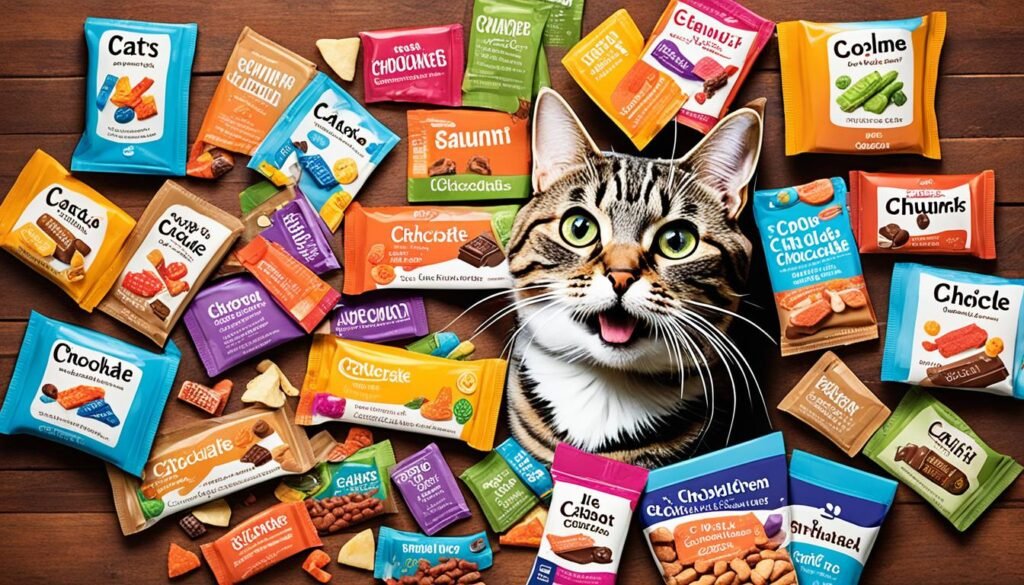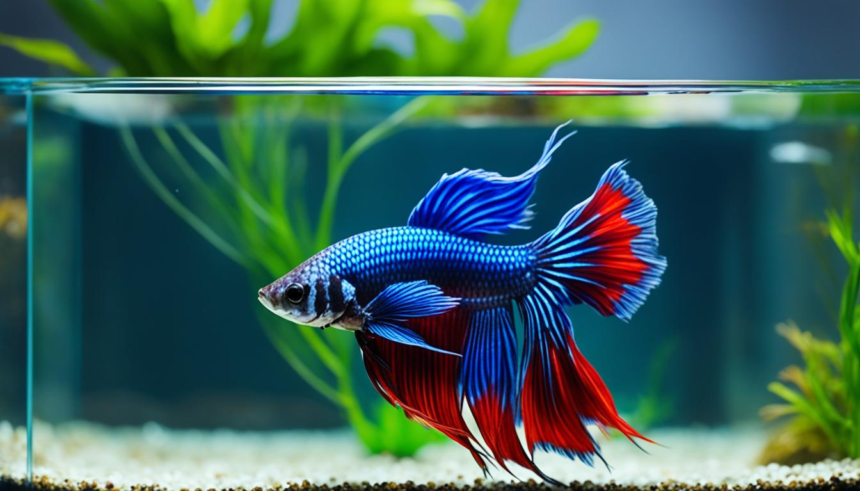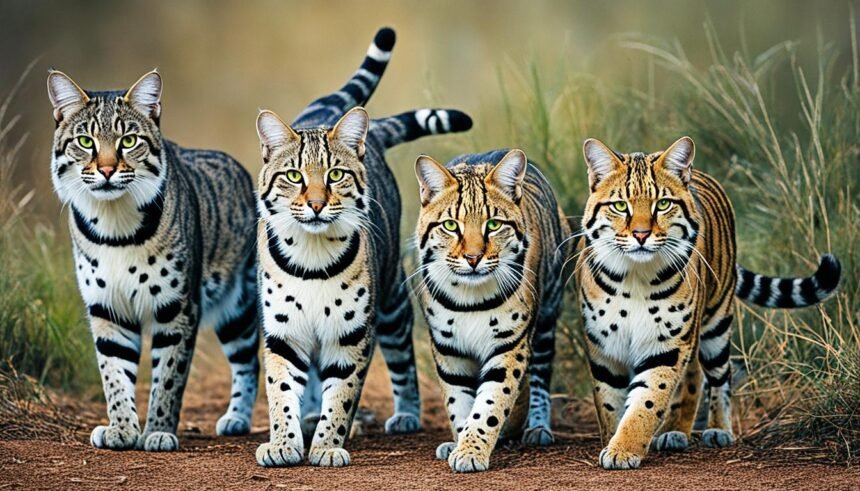Chocolate is a delicious treat enjoyed by many humans, but did you know that it can be extremely toxic to cats? While cats may be curious and try to sneak a taste, it is important to understand the dangers and take necessary precautions to keep your furry friend safe.
The main reason why chocolate is toxic to cats is due to the presence of two substances: theobromine and caffeine. These compounds can have harmful effects on your cat’s health and well-being.
If your cat ingests chocolate, it can experience symptoms of chocolate poisoning, including vomiting, diarrhea, increased heart rate, and muscle tremors. These symptoms can be severe and even life-threatening if not addressed promptly.
Therefore, it is essential to seek veterinary care immediately if you suspect that your cat has consumed chocolate. The vet will be able to assess the situation and provide appropriate treatment tailored to your cat’s specific needs.
When it comes to chocolate, not all types are created equal. The amount of theobromine varies depending on the type of chocolate, with baking chocolate containing the highest levels, followed by dark chocolate, milk chocolate, and white chocolate. However, it is crucial to keep in mind that even small quantities of any type of chocolate can be harmful to cats.
Instead of risking your cat’s health by allowing them to consume chocolate, it is best to explore alternative treats that are specifically formulated for feline consumption. There are many cat treats available on the market that are not only safe for cats but also offer health benefits and support their diet and dental care.
Remember, prevention is better than cure. By keeping chocolate out of your cat’s reach and providing them with proper care, attention, and appropriate treats, you can ensure their well-being and protect them from the dangers of chocolate.
Why is Chocolate Toxic to Cats?
Chocolate contains theobromine, a chemical that is toxic to cats. Theobromine toxicity can lead to various symptoms in cats, including vomiting, diarrhea, increased heart rate, and seizures. Cats are particularly sensitive to the effects of theobromine, as they metabolize it much slower than humans or dogs. This means that even a small amount of chocolate can result in severe poisoning for a cat.
The amount of theobromine in chocolate varies depending on the type. Baking chocolate contains the highest concentration of theobromine, followed by dark chocolate, milk chocolate, and white chocolate. Here is a breakdown of the approximate theobromine content in different types of chocolate:
| Chocolate Type | Theobromine Content (per ounce) |
|---|---|
| Baking chocolate | 450 mg |
| Dark chocolate | 160 mg |
| Milk chocolate | 64 mg |
| White chocolate | Negligible |
As you can see, baking chocolate contains the highest amount of theobromine and is therefore the most toxic for cats. It is important to note that even small amounts of chocolate can cause theobromine toxicity in cats, so all forms of chocolate should be kept out of their reach.
Now that we understand why chocolate is toxic to cats, it is crucial to ensure that our feline friends are never exposed to this dangerous substance. In the next section, we will discuss what to do if your cat eats chocolate and the steps you can take to prevent chocolate poisoning.
What to Do If Your Cat Eats Chocolate
If your cat ate chocolate, it is crucial to take immediate action and seek veterinary help. Time is of the essence when dealing with chocolate toxicity in cats. Here are the steps you should follow:
- Call the Vet: As soon as you discover that your cat has ingested chocolate, contact your veterinarian. They will provide you with guidance on what to do next based on the severity of the situation.
- Inducing Vomiting: In some cases, the vet may advise you to induce vomiting in your cat to expel the chocolate from their system. However, this should only be done under the supervision of a professional to avoid any complications. Keep in mind that not every situation calls for inducing vomiting, as it depends on factors such as the quantity and type of chocolate consumed.
- Determining Quantity and Type of Chocolate: The veterinarian will perform tests to determine the amount and type of chocolate your cat has ingested. This information is crucial for assessing the potential risks and planning the appropriate course of treatment.
- Chocolate Toxicity Treatment: Treatment for chocolate toxicity in cats varies depending on the severity of the case, the quantity and type of chocolate consumed, and the cat’s overall health. The vet may administer intravenous (IV) fluids to flush out toxins and provide supportive care. They will monitor your cat closely and treat any symptoms that may arise, such as increased heart rate or muscle tremors.
Remember, it is important to act swiftly and rely on professional veterinary care when dealing with a cat that has consumed chocolate. Delaying treatment or attempting home remedies without guidance can be dangerous. Always consult with your vet to ensure the best possible outcome for your furry friend.

Alternatives to Chocolate for Cats
Instead of giving cats chocolate, it is best to find specially formulated cat treats that are safe for feline consumption. Cats love treats, and providing them with feline-safe treats not only satisfies their taste buds but also promotes their overall well-being.
There are many options available in the market when it comes to finding cat treats that are not only appetizing to cats but also offer health benefits and support their balanced diet and dental care. These treats are formulated to meet the nutritional needs of cats and help maintain their oral health.
When choosing cat treats, look for ones that contain high-quality ingredients that are beneficial for your cat’s health. Treats made with real meat or fish are often a hit among feline friends. Additionally, some treats are designed to promote dental hygiene, helping reduce plaque and tartar buildup.
Remember, while treats are a great way to show love and attention to your furry companion, it’s important not to overindulge them. Treats should be given in moderation, keeping in mind your cat’s overall dietary needs.
By opting for cat-safe treats, you can provide your feline friend with a delicious alternative to chocolate, ensuring their safety and well-being.

| Treat Brand | Features |
|---|---|
| Purina | Offers a wide range of flavors and dental care benefits |
| Blue Buffalo | Uses natural and high-quality ingredients |
| Temptations | Crunchy treats that come in various flavors |
| FELIX | Delicious treats with a variety of textures and tastes |
Conclusion
Chocolate is highly toxic to cats due to the presence of theobromine and caffeine. If your cat consumes chocolate, it is essential to seek immediate veterinary care. Symptoms of chocolate poisoning can be severe and even deadly.
Instead of chocolate, opt for specially made cat treats that are safe and beneficial for your feline friend’s health. There are many cat treats available that are not only appetizing to cats but also offer health benefits and support their diet and dental care.
Keeping chocolate out of reach and providing proper care and attention is key to keeping your cat safe from the dangers of chocolate. Treating your cat with love, attention, and appropriate cat treats is much better than giving them chocolate.
FAQ
Can cats eat chocolate?
No, chocolate is toxic to cats.
What are the symptoms of chocolate poisoning in cats?
Symptoms can include vomiting, diarrhea, increased heart rate, and muscle tremors.
Why is chocolate toxic to cats?
Chocolate contains theobromine and caffeine, which are toxic to cats.
What types of chocolate are most toxic to cats?
Baking chocolate is the most toxic, followed by dark chocolate, milk chocolate, and white chocolate.
What should I do if my cat eats chocolate?
Seek veterinary care immediately. The vet may induce vomiting and perform tests to determine the quantity and type of chocolate consumed.
What treatment is there for chocolate toxicity in cats?
Treatment may include administering IV fluids and treating any symptoms that arise.
Can I give my cat chocolate treats?
No, it is best to find specially formulated cat treats that are safe for feline consumption.
What are the alternatives to chocolate for cats?
There are many cat treats available that are not only appetizing but also offer health benefits and support their diet and dental care.













